
AWARD THIS! 2023 NOMINEE! It’s a foregone conclusion that robots are taking over. It’s just a matter of when. In Christopher Morvant’s sci-fi thriller Life Cycle, we’re a fly on the wall to the birth of the robot invasion.
Living in his mother’s basement, Carl (Adam Weber) is just one step away from bringing his creation to life. With the flip of a switch, it is done, and Vetro (Kory Karam) is born, taking the form of a robotic head on a swiveling round plate. Carl tells Vetro that he is about to embark on a journey to become the perfect human simulation. At this first stage, Vetro can observe the world around him and extract any information from the internet. As Vetro matures, he creates new subroutines to evolve that can be installed once Carl approves them.
The first stage of Vetro’s development is in the realm of emotions. Carl demonstrates various emotions through his facial and vocal tone, and Vetro mimics them. Of course, Carl’s television offers another invaluable resource. As the stages progress, the two discuss several facets of being human, including dreaming, having a purpose in life, and how humans process memories over time.
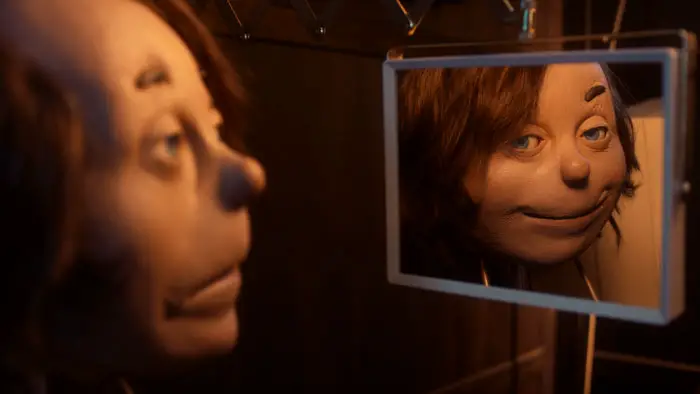
“Carl tells Vetro that he is about to embark on a journey to become the perfect human simulation.”
There’s a great deal to admire about Life Cycle. As an indie sci-fi thriller, writer-director Morvant focuses his story on the technology and the progress of an A.I. seeking sentience. 95% of the film takes place in Carl’s basement bedroom and consists of a series of conversations between Carl and Vetro. The narrative moves down a very familiar path but does so in a fresh way. Invariably Vetro will find himself at a point where he is not only Carl’s intellectual equal but surpasses his creator. Yet, it doesn’t go down the path you’d expect. Morvant plays around with this tension brilliantly.
The star of Life Cycle is the animatronic head, Vetro. The puppetry is incredible. The head itself will remind you of a Muppet. It’s got the standard mouth and eye movements, but added is a great deal of intricate articulation, particularly in the eyes, eyebrows, and nose giving Vetro some emotional range. Vetro is all hand-built, and though not perfect, it works for this story and gets the job done.
The other star is the story. The film is very smart in how it lays out the steps of creating the perfect human simulation. As a computer, Vetro holds its data in a perfect, pristine state with unlimited storage. One session has Carl asking Vetro to decide which memories are important and embellish those while discarding the unnecessary ones. Carl also builds a “death” option neither he nor Vetro control. The explanation for this is quite satisfying, and Vetro’s response is perfect.
We all know this, but Big Hollywood rarely ever gets science fiction right. It’s all about giant spaceships, laser guns, and cute sidekick robots. Life Cycle shows that it’s incumbent on independent filmmakers to tell thoughtful, existential, and philosophical stories about the human condition. What does it mean to be human? Morvant has created one of those films you want to show your nerd and geek friends and discuss long after it is over.
For screening information, visit the Life Cycle official website. Life Cycle is a 2023 Award This! Indie Sci-Fi nominee.
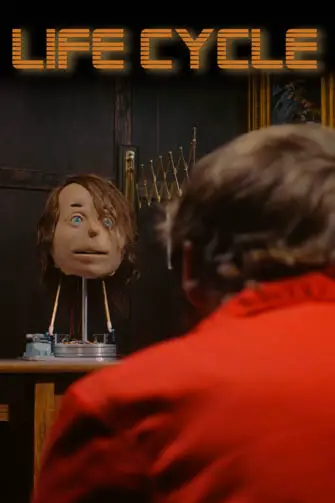
"…thoughtful, existential, and philosophical stories about the human condition."
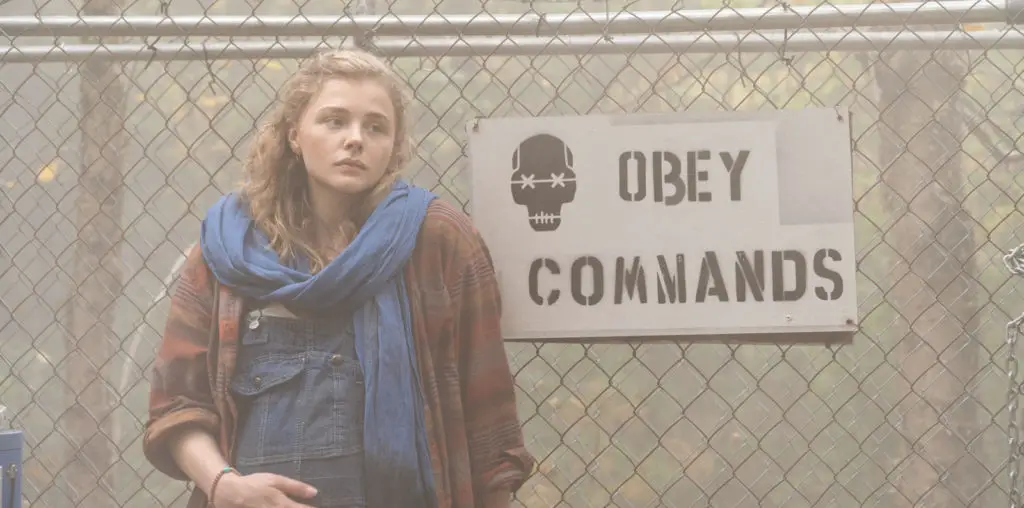
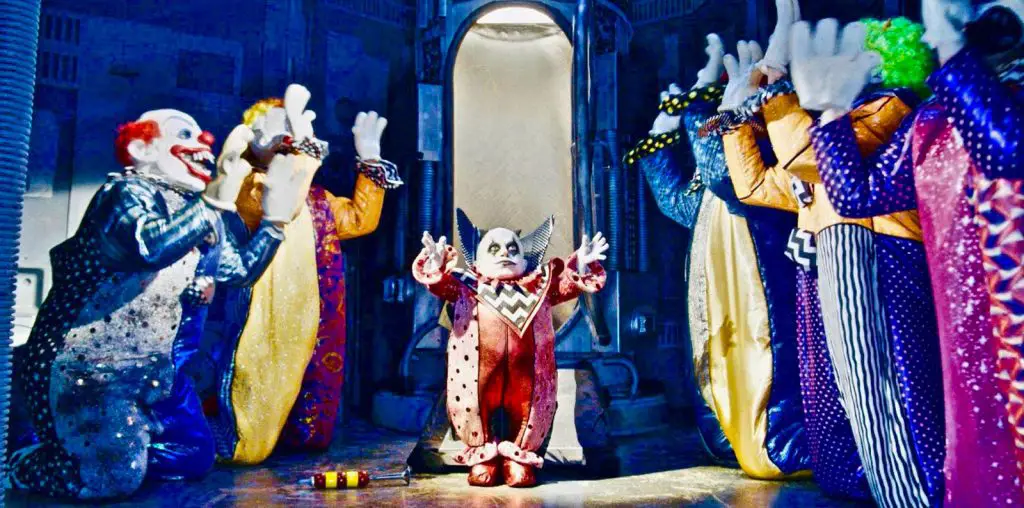
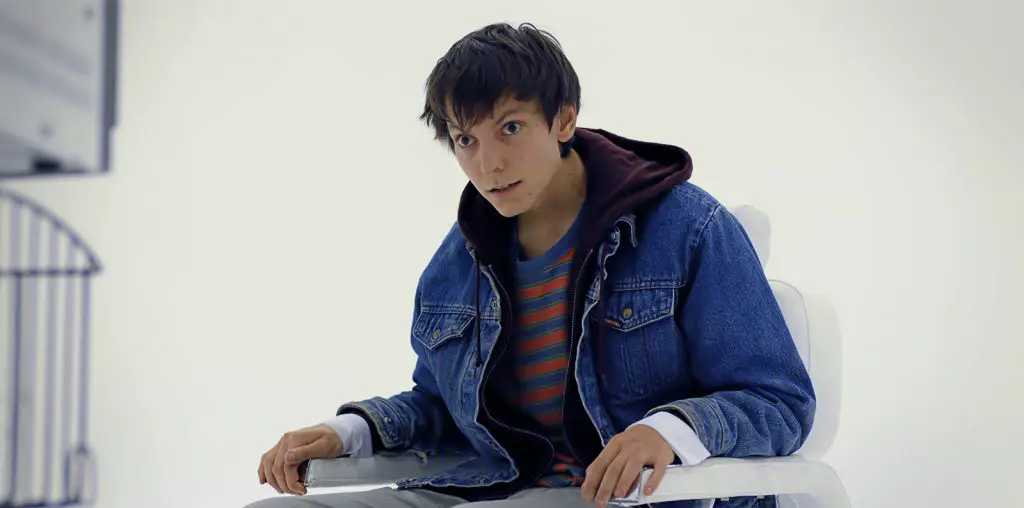
Powerful movie – and their are moments when it gets a bit slow – but then again there are always up and downs – an interesting movie.
You’re left at the end saying !! ”NOO!!! Don’t do it!! Why? What! WAHT!?…
You feel a bit robbed … then again, that’s life.
I just finished the movie and was impressed. Most of the Scifi story was interesting, the weirder dream/horror elements not so much, although some of the dreams were apt. It does recall the novel “Galatea 2.2” by Richard Powers, which to me is more satisfying. But again, an impressive effort, especially the animatronic work.